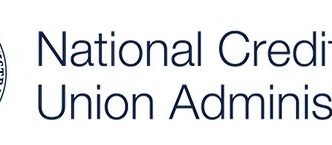As the coronavirus continues to impact individuals and businesses, last week the Coronavirus Aide, Relief, and Economic Security (CARES) Act was signed into life. The LSCU held a webinar yesterday with interpretation of the new law by John McKechnie, senior partner at Total Spectrum, which is a government affairs consulting firm. The CARES Act will directly affect how credit unions are able to respond to their members’ needs, while also providing direct economic assistance for many Americans.
McKechnie examined the details available at present, explaining repeatedly that further clarification is expected to come from the SBA, Treasury and regulators. As it stands, many items are ambiguous and “flying the plane as you’re building it.”
“Congress was in a headlong rush to try to prevent people from losing their homes, and that’s a noble thing,” McKechnie said. “But the downstream consequences are real.”
Credit unions will have decreased income with forbearance, a serious concern as NCUA has not made clear the policy on how those numbers will affect operations.
McKechnie assured webinar participants that he and LSCU President Jared Ross would be digging deep into guidance as soon as it is available — it was expected at noon yesterday, but had not been received.
McKechnie says the CARES Act basically boils down to the Treasury injecting money into the economy to stabilize it with some of the funds going to loan guarantees, some to Federal needs and some to state and federal governments.
“The idea is to keep things afloat while we are under a period of maximum stress,” McKechnie said, saying one specific hot topic is especially for mortgage lending provisions and forbearance.
“There is obviously a lot of confusion and unknowns,” Jared said. “We are continuing to get you everything that you can.”
McKechnie, based in Washington, D.C., said the sort of questions he heard – from whether credit unions should apply for the now vague SBA loans to impacts on the credit unions was helpful to him and shows, “congress needs to know there a lot more complexity in the marketplace.”
One specific hot topic especially for mortgage lending provisions provide mortgage forbearance. McKechnie called the Act entirely new beyond anything the mortgage market has seen in the past. The Act states that any borrower will receive a 360-day forbearance without proof of hardship.
“This crisis has caused unprecedented steps,” McKechnie said.
Credit union lending officers have made multiple calls with questions and concerns about what effect this will have on credit unions as consumers. On the mortgage servicing side, the additional stress and strain will have an impact. The law allows no additional fees, interests and penalties.
McKechnie said speaking with NCUA officials on Wednesday, it is still unclear how these situations will be worked out. “They’re trying to get things done as quickly as they can in D.C., and I’m not sure the regulatory side of the bargain can be upheld,” he said. “It is the law of the land, and we are going to have to find out what the interpretative regulations look like.”
Jared and John are reaching out to legislators and are closely examining existing information and the regulation we’re waiting to come through the pipeline.
As far as SBA lending, McKechnie says the bill is described as two-pronged rationale — one facet is to help small business during the worst of the crisis that is ongoing through the government helping small business cover expenses. The second facet is to create a strong incentive for employers to retain employees. “You often hear people disparage throwing money at a problem,” McKechnie said. “In this case, it’s probably the right thing to do given the stress on the economy.”
A provision in the act, the Paycheck Protection Program, which offers loans to small businesses, was a topic of great interest, though there is little clarity at this point on that matter. The SBA has been given a line of $349 billion of new money to lend through June 30. That program had been $30 billion for normal operations so has multiplied more than 10-fold and brought with it numerous questions, including whether credit unions qualify as borrowers.
Loans are for businesses, nonprofit veterans groups and tribal organizations with 500 or fewer employers. While 501c3s are not precluded in the law, it isn’t clear that they are included. In addition to a lender, can a credit union become a borrower? That was the critical question.
As soon as more clarification is available from the treasury, that information will be fast-tracked to our credit unions. Currently, CUNA is interpreting the answer as no, though others say as small employers, credit unions should be eligible. As we wait for more details to specify eligibility, lending will begin tomorrow, April 3, for businesses, non profits and tribal groups with fewer than 500 employees. Independent contractors and self-employed individuals can apply April 10.
McKechnie said while waiting for the guidelines is difficult, he hopes decision makers are striving to get it right the first time, saying “the last thing you want is contradictory guidance.”
One question that emerged during the conversation was if credit unions are obligated to provide SBA loans, and the clear answer was that they are not. The LSCU will post a list of SBA approved lenders so that credit unions can offer alternative sources to members seeking those if they decide not to offer them at their institutions. With the loan forgiveness outlines in the CARES Act, Mckechnie said, “it’s a pretty attractive program. No one could have imagined anything like this.”
About the rampant ambiguity in the original Act, McKechnie said, “The Treasury and SBA hopefully are hammering out solid and reasonable guidance.”
More information will be available on the LSCU coronavirus resource site, including a recording of the webinar and slide deck.






